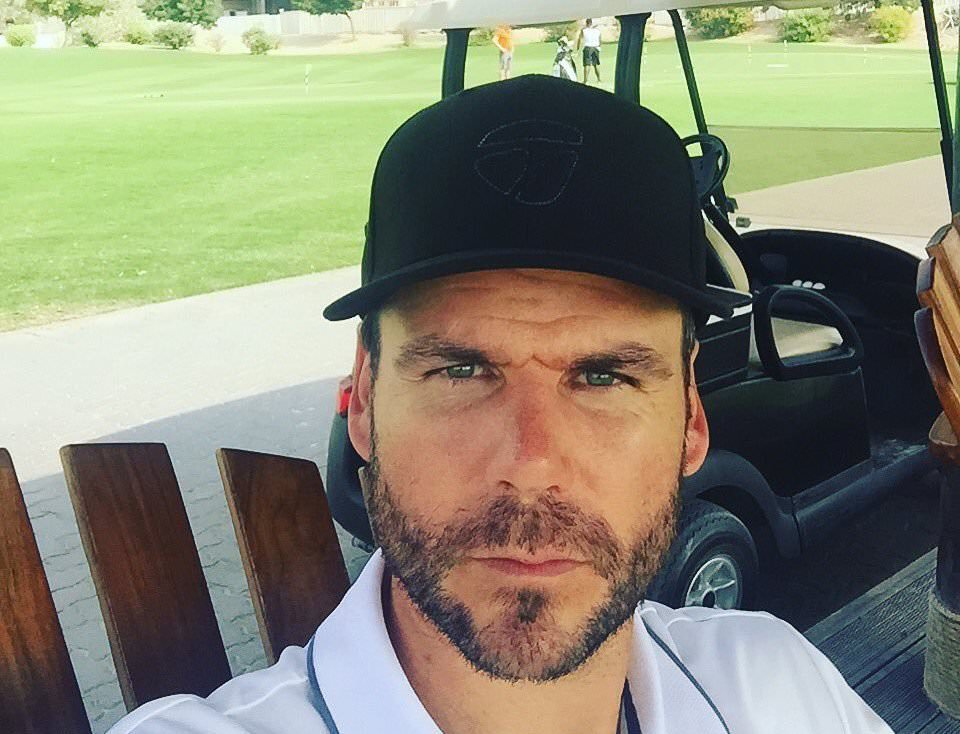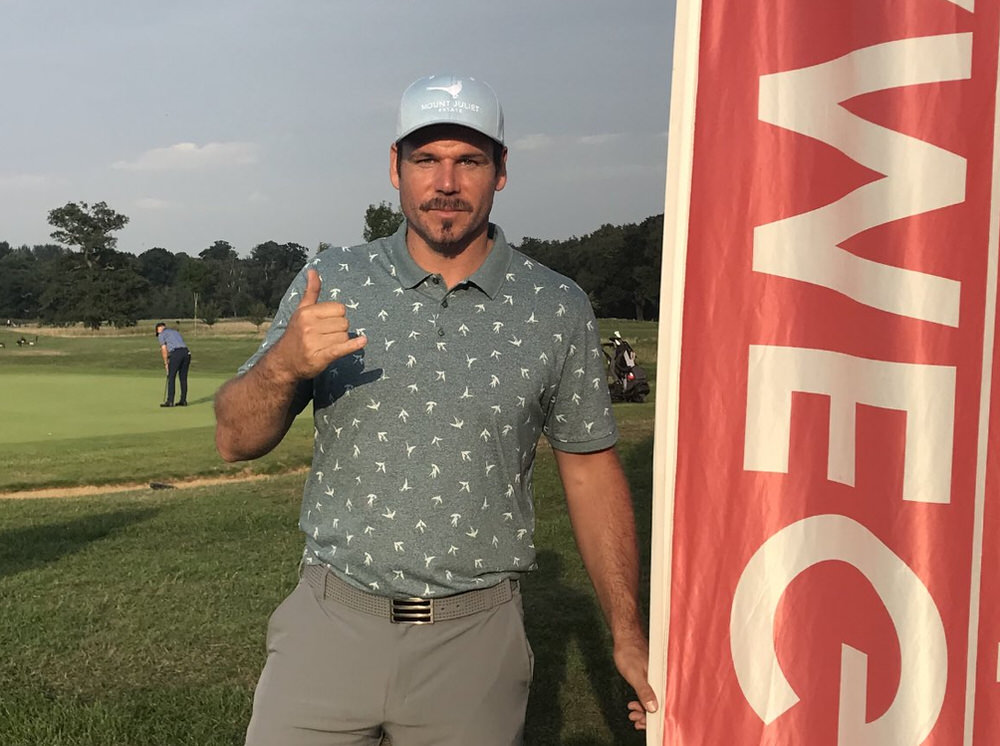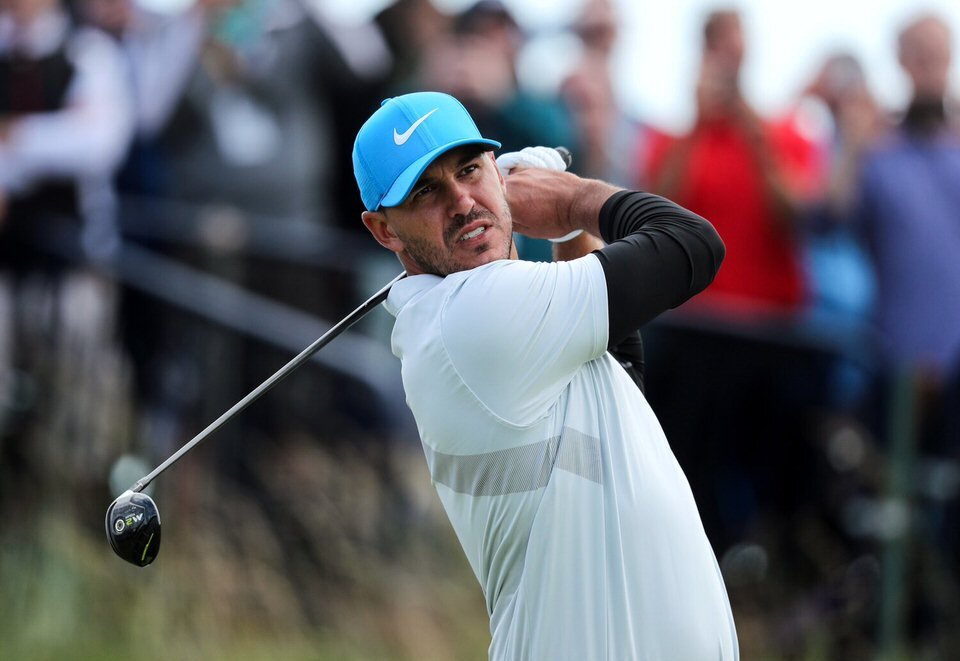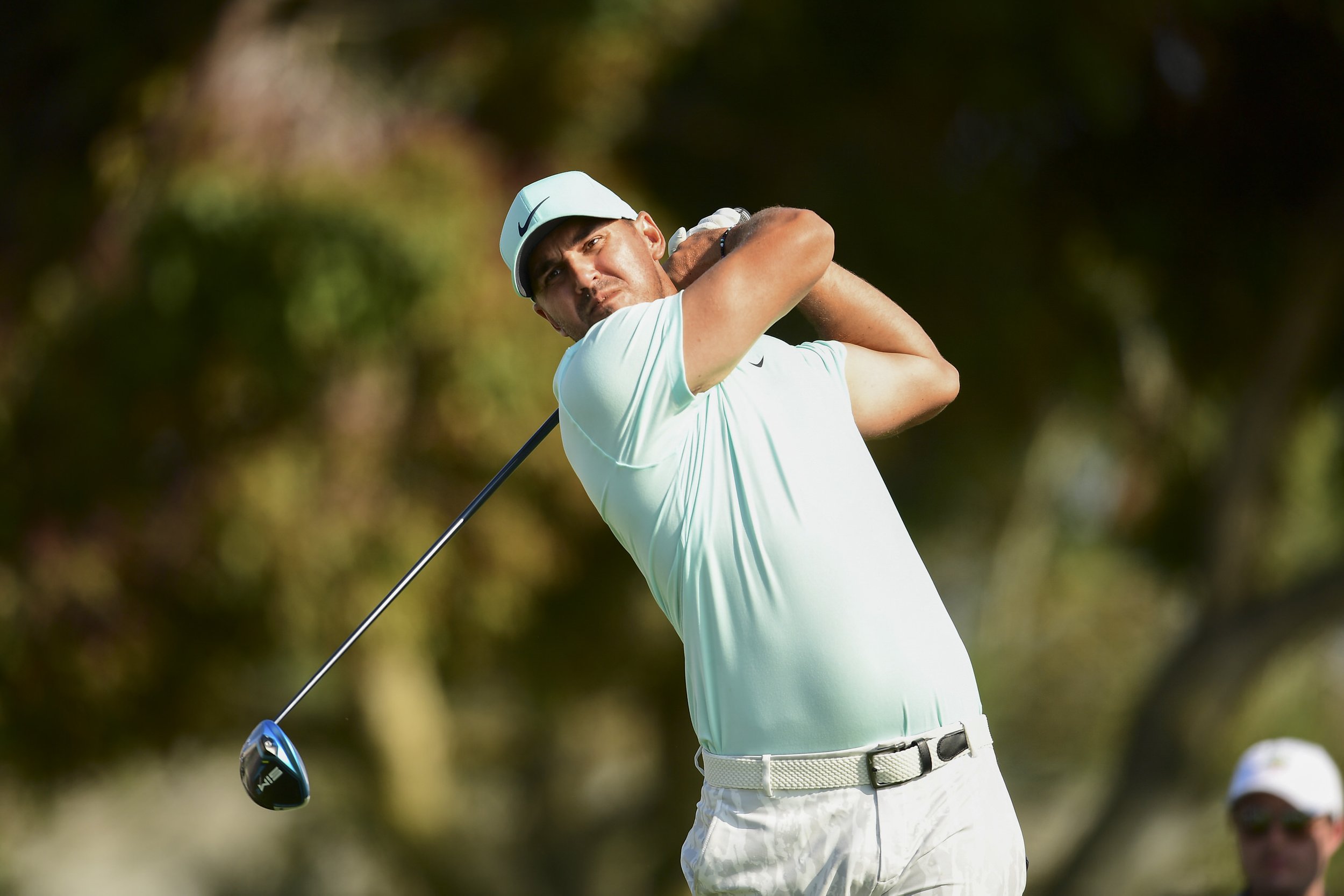Stephen Grant: "Lads slag off guys playing League of Ireland, but they are making a living. Literally"

Stephen Grant might have turn 40 last month but the dream of making it to one of the world’s professional golf tours still drives this former Shamrock Rovers forward to chase the seemingly unattainable.
There’s just one problem for the Birr native with the Florida base and multiple business interests as he still tees it up on the third tier Europro Tour, occasionally poaching Pádraig Harrington’s caddie Ronan Flood: he wonders sometimes if he lacks “the balls” to get the job done.
Living in an exclusive, gated community in Palm Beach Gardens in Florida and practising at the Bear’s Club, where you are as likely to bump into Jack Nicklaus or Rory McIlroy as Michael Jordan, he practices often with the world No 19 Brooks Koepka, shoots regularly in the 60s and wins the occasional side bet.
But after reaching the second stage of both the European Tour and PGA Tour Q-School last autumn and failing to get through either, he admitted his head was “fried.”
“I was shooting great scores in practice rounds - 7 or 8 under - and I hadn't been doing that in practice for a couple of years,” he said before finally deciding to bite the bullet and head back to Europe to earn his card for the third tier Europro Tour card with Flood on his bag.
“I’ve been to the Second Stage of Q-School seven times and never made it to final stage. It's like I have an unbelievable mental block because I know a load of guys I am equally as good as guys who have won tour cards.”
Grant will be the first to admit that having retired from football — he played for 10 clubs in Ireland, the UK and the USA between 1994 and 2004 — someone who takes up golf at the age of 26 has little chance of making it as a pro.
Still, he refuses to give up and hopes that a move to coach Noel Fox, who helped Peter O’Keeffe win the Flogas Irish Amateur Open last week, could prove to be the key.
“I have been trying to hit a fade with Claude Harmon the last couple of years and it didn't work,” he said. “So I started working with Noel Fox, hitting a draw again. And while we only started working before Q-School, I have been playing all the time with guys like Brooks Koepka and Robert Allenby and holding my own. And Brooks is one of the best players in the world.”
Grant has many business interests — he has just bought a chain of health food stores in the UK and has an investment in Tetrarch Capital, which owns Mount Juliet and other venues.
In other words, he has none of the financial pressures that plague most of Ireland’s budding tour players.
Just don’t call him a professional golfer, like close friends Harrington or Shane Lowry, who actually make money from the game.
It’s finance that kills most tour dreams.
“It is an amazingly tough game and I don't think people have a clue how good you have to be,” said Grant. “And I can tell right away now in ten minutes playing with someone if they have a chance or not.
“That might sound crazy but I have seen the guys who have made it and what you need or don't need. The one thing for me is that I am self-funding, I have businesses and I am paying my own way.
“The one thing that is tough is seeing kids who are turning pro who have no chance. That families are borrowing money to get them out there. That is the only bad side of pro golf.
“You get lads who make jokes and slagging off pro footballers who might be playing in the Second Division or First division football in England or might have been playing League of Ireland.
“It might not be super trendy but they are picking up a cheque every week and they are living off it. Literally. They are able to pay their bills, drive a car and buy a home.
“But guys like me playing golf, none of us are professional golfers. None of us are making money from the game. You are only a professional golfer when you are on the PGA Tour or the European Tour. Not even on the Challenge Tour are you making money.
“Most guys are barely staying alive out there. You are only a professional golfer when you are making money from the game. There are a lot of guys disillusioned out there.
“You'd want to be doing pretty well on the European Tour you'd want to be one of the top players to make a proper living.”
The longer he goes without making the grade, the more he doubts that he has “the right stuff” — that X-Factor that separates the good players from the stars who make millions.
“It was always a big stretch for a guy who started in his mid-20s to get out on tour,” Brant admits. “Even to get to Second Stage seven times and have a bunch of second places and course records is a good achievement. People can't just judge me on results, they have to judge me on where I have come from.”
Having played with some of Ireland’s top amateurs on the mini tours and Challenge Tour over the last decade, Grant says he could see straight away that they were “miles off the level of the guys I am playing with back in Florida.”
“The difference is phenomenal,” he said. “A PGA Tour player like Brooks Koepka hits it longer and he hits it straighter. Tour players hit their irons closer, they putt better. They are just better.”
With friends like Lowry, Harrington, Flood and Fox, Grant is not short on advice. But he knows that the only thing that money can’t buy is nerve.
“The biggest thing you need is a pair of balls,” he said. “A lot of people that know me will tell you I have the game so I wonder if it is a pair of balls I am missing.
“The difference is that guys like Pádraig seem to have that mental belief and I wonder if I had grown up playing golf, I might have had that mentality. I sometimes wonder if I am an imposter and don't belong.
They say you should be careful what you wish for and Grant cites an English pro as an example of how a dream can become a nightmare.
“He got his dream, his European Tour card,” Grant said. “But he had to pay his caddie £25,000 to cover 25 events, then he had travelling expenses of £25,000 and then he had his living costs at home of £25,000.
“So it cost him £75,000 to live that year and he made seven or eight grand in prize money - missed loads of cuts. He ended up in serious debt and it turned into a nightmare.”
Still, he refuses to quit, constantly chasing a dream that’s as elusive as a helium-filled balloon — so close he can touch it, but always bobbing inches out of reach.






